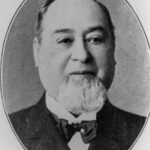Not too long ago I had an issue with our stove and called a local mom and pop repair company. The next day a technician showed up at my front door ready to repair our stove. He showed up in a non-descript white van, was dressed in clean blue jeans and a tee shirt and carried a tool bag. The only clue he was the technician we were waiting for was based on the fact that he was carrying a tool bag, something a stove repair technician would carry.
After some preliminary diagnostics, it was discovered that we needed to make a special order for the broken part of the stove. The technician took out a tablet from his bag, went online, ordered the part and listed the shipping address as our home address. Before he left he said we should call the company back when the part arrived to schedule its installation.
The next day the part arrived via FedEx so we called the company informing them that the part had arrived. The day after that, a different technician arrived and installed the part. While both technicians were pleasant and competent, something struck me as a bit unprofessional at the time but I could not quite put a finger on it.
A few days later I went to the hospital where one of my sons was having a medical procedure. I noticed that everyone from doctors to orderlies wore scrubs. During our visit, I learned that the color of the scrubs denoted the person’s role at the hospital. Doctors wore one color, nurses another, orderlies yet another. It was easy to spot a nurse from a long way off since all you had to do was look for a person in black scrubs. How professional I thought and then it hit me. It’s the “Uniforms” that made a business look more professional.
As I processed the idea of uniforms and professionalism, I recalled that one of my sons works in a restaurant and how easy it was to recognize cooks from servers based on their uniform. Cooks wore a double-breasted chef jacket and hats in various colors and styles to signify their seniority and responsibilities in the kitchen while all the servers wore black shirts and trousers.
Another son works in the automotive industry where all the mechanics wore the same style/color of shirt and trousers and had a patch with their name on the shirts. The service writers who dealt with customers all wore the same style shirts, different in color from those worn by the mechanics, but with the company name and logo on it and a badge with their name on it.
I recognize that some industries require employees to wear a uniform for either protection, as is the case with the chef jacket or because they are inherently dirty jobs as with the automotive mechanics. However, this same reason did not apply to the servers or the service writers.
Many of the small business owners I meet often wear a shirt with their company name and logo embroidered on it. I have a few too. However, their employees just tended to wear street clothes. In my invisible fencing days, I always wore a branded shirt when I made a sales call but my employees wore street clothes.
Go to any franchise restaurant from McDonald’s to Subway and you will see employees in well-branded uniforms. Then go to a local non-franchise restaurant, you will, most likely, see employees wearing street clothes. Next, go to an automotive dealership and look at the employees in the shop and you will see people in uniforms. Then, go to your neighborhood gas station with a service bay and look at the automotive technicians and you will likely see then in grubby jeans and a tee shirt.
What I have observed is that franchise operations, be it cleaning companies or landscapers, generally have their employees dressed in some kind of common uniform while employees from non-franchise operations do not, generally, wear any kind of uniform.
As I shared in Your Business Packaging, employee uniforms are part of a business’s packaging. As consumers, we often have no personal experience with a new business and we subconsciously look for observable clues to make our decision. Workers in uniforms help us to judge a book by its cover. Businesses with employees dressed in a uniform make me think of them as franchises. One thing about franchises is they provide consistent results, which is in itself comforting making them feel more professional and trustworthy.
I think many prospective clients, consciously or subconsciously, judge your business by what they see. Furthermore, their experiences have taught them that franchises tend to provide more consistent results and that they can be trusted and counted on. Franchise workers have a certain look about them (uniforms) that I don’t think many prospective clients consciously realize. I, therefore, think that a small business that invests it making their employees wear some kind of uniform can leverage a subconscious relationship with a prospective client’s view on franchises and appear to appear more professional and trustworthy on a subconscious level.
Are you ready to make your business look more professional?












